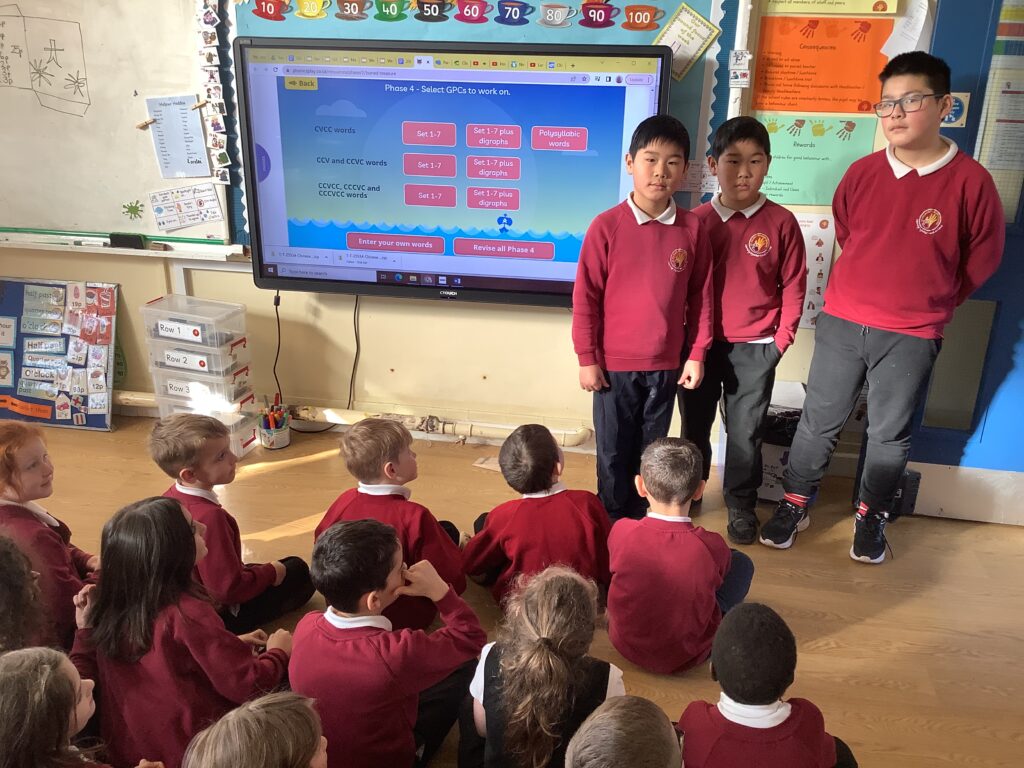Taking care of our well-being in school is really important. It means making sure we feel happy, healthy, and safe. When our school focuses on our well-being, it helps us learn better and feel good about ourselves. We feel like we belong and can handle challenges. It’s about taking care of our emotions, making friends, and learning important life skills. When our school cares about our well-being, we have a great place to learn, make friends, and get ready for a wonderful future.
Wellbeing & Mental Health
Jigsaw
As part of our curriculum, we teacher ‘Jigsaw’ lessons. These lessons focus on a different aspect each half-term.
Being Me In My World covers a wide range of topics, including a sense of belonging, welcoming others and being part of a school community, a wider community, and a global community; it also looks at children’s rights and responsibilities, working and socialising with others, and pupil voice.
Celebrating Difference focuses on similarities and differences and teaches about diversity, such as disability, racism, power, friendships, and conflict; children learn to accept everyone’s right to ‘difference’, and most year groups explore the concept of ‘normality’. Anti-bullying, including cyber and homophobic bullying, is an important aspect of this Puzzle.
Dreams and Goals aims to help children think about their hopes and dreams, their goals for success, what their personal strengths are, and how to overcome challenges, using team-work skills and tasks. There is also a focus on enterprise and fundraising. Children learn about experiencing and managing feelings of pride, ambition, disappointment, success; and they get to share their aspirations, the dreams and goals of others in different cultures/countries, and their dreams for their community and the world. It’s great for children to have this experience, to think ambitiously, and to have aspirations.
Healthy Me covers two main areas of health: Emotional/mental health (relaxation, being safe, friendships, mental health skills, body image, relationships with food, managing stress) and Physical health (eating a balanced diet, physical activity, rest and relaxation, keeping clean, drugs and alcohol, being safe, first aid).
Relationships starts with building a respectful relationship with self and covers topics including families, friendships, pets and animals, and love and loss. A vital part of this Puzzle is about safeguarding and keeping children safe; this links to online safety and social networking. Children learn how to deal with conflict, build assertiveness skills, and identify their own strengths and strategies for building self-esteem and resilience. They explore
roles and responsibilities in families and friendship groups, and consider stereotypes.
Changing Me deals with change of many types, from growing from young to old, becoming a teenager, assertiveness, puberty, self-respect and safeguarding. Each year group thinks about looking ahead, moving year groups or the transition to secondary school and how to cope positively with such changes. Life cycles and human reproduction are taught in some year groups.
5 Ways to Wellbeing
At St Julian’s Primary School, we also teach children about the ‘5 Ways to Wellbeing’…
Connect
Having friends and feeling loved by them is very important for us humans to be happy and do well in life.
Having good relationships with others helps us stay healthy in our minds and hearts.
Today, you should try to do something to make new friends or connect with the people we already know.
Instead of sending an email, talk to someone. Say hello to someone in school you haven’t spoken to before. Ask your friends how their weekend was and really listen to their answer. Take a few minutes to check on our friends and see how they’re feeling.






Be Active
Exercise helps us feel less sad and worried. It’s also good for our minds and helps us think better as we grow older.
We don’t have to do intense exercise to feel good, just doing things like walking can be helpful. Plus, it can also give us a chance to talk with others.
Try to get your body moving today! Here are some ideas:
Take the stairs instead of the lift. Go for a walk. Walk to school with a friend. Play a sport with your friends. Play a game of football in a park. Stretch before school in the morning.






Take Notice
Take time to be still, reflect, and become aware of your surroundings. Notice what you are thinking and be aware of what’s going on in the world around you: the everyday and the unusual. Be curious. Savour your favourite food.






Learn
Learning new things throughout our lives can make us feel better about ourselves and help us make new friends and be more active.
People say that doing work or learning new things can especially help older people feel happier.
Setting goals for what we want to learn can make us feel even better.
Try learning something new today! Here are some ideas:
Find out something about the people you go to school with. Learn a random fact. Learn how to play a musical instrument. Read a book or the news. Do a puzzle like a crossword or word-search. Learn about something you’ve always wondered about. Learn a new word.






Give
Helping others can make us happy. People who like to help others are more likely to say they are happy.
Studies show that regularly doing something kind for others can make us feel a lot better.
You can either give others money or gifts, or you can give them your time to help them with something. Do something nice for a friend. Thank someone. Smile. Volunteer your time. Raise money for charity. Be a good role model. Take action to improve your neighbourhood.






